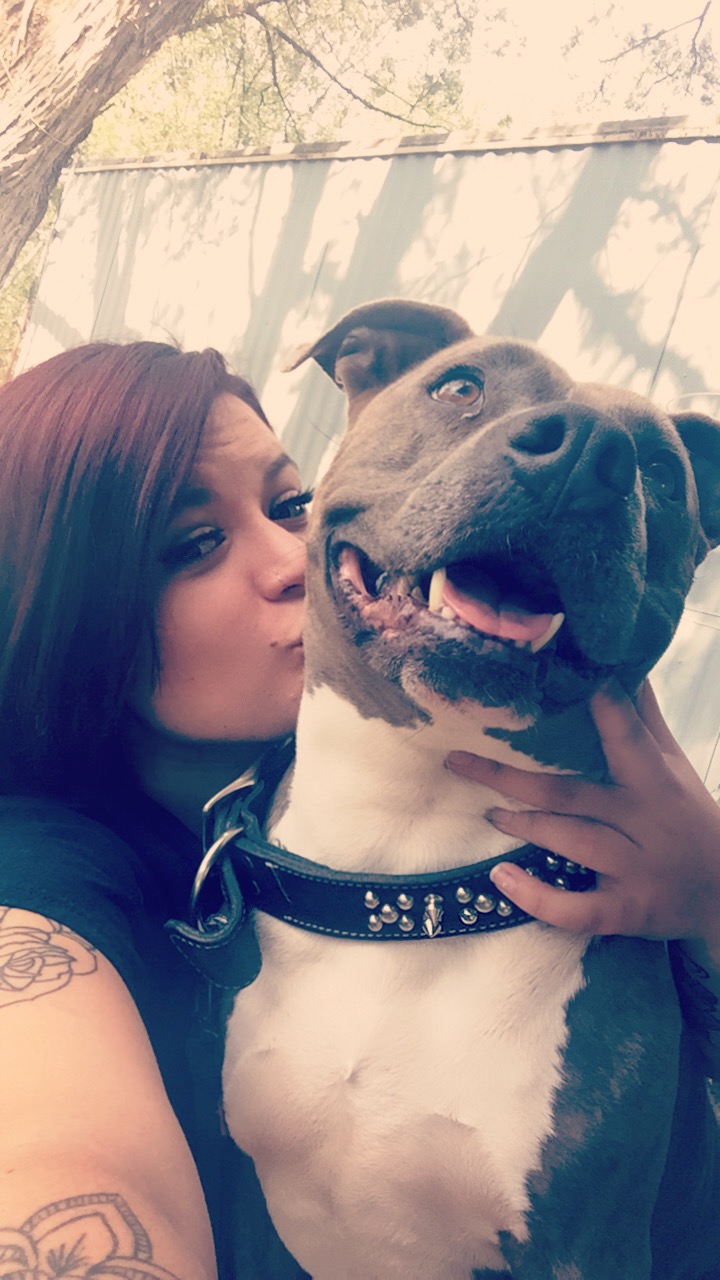By HEAL Staff Writer Jessica Martinez
One common question regarding domestic violence victims and survivors is “why does she stay?” While there are many valid reasons why someone might not leave a violent relationship, Help End Abuse for Life, Inc. (HEAL) and The Nest, Lincoln County’s only domestic violence shelter, is doing what they can to be sure that leaving family pets behind is not a barrier for those fleeing a violent situation.

“Pets often prevent women and children from leaving their abusers for fear of what will happen if they leave their pet behind,” said Nest Executive Director, Gwyn Kaitis. “An abuser may use actual or threatened animal abuse to silence victims or to prevent them from leaving a violent relationship. Abusers kill, hurt or threaten animals to exert power over their human victims and to show them what could happen to them. Abusers will also try to get a victim who has left to return by threatening to harm the family pet they left behind.”
In addition to eliminating the fear of leaving pets behind, maintaining the human-animal bond is critical to healing from the trauma of domestic violence. Breaking that bond, Kaitis believes, would be another form of trauma for the women and children who seek shelter.
Only 3% of domestic violence shelters in the United States allow pets. Sometimes there will be alternative programs such as fostering the pet while a victim is in shelter but that doesn’t allow the pets and the family to have direct contact with each other. Kaitis feels that it is important for both human and animal members of the family to heal from the trauma together.
This is why pets are welcome and encouraged to accompany their family during their stay at The Nest. Families are allowed to have their dogs, cats, birds, or small animals in their rooms during their stay. Dogs may also be allowed in the shared living areas of the shelter as long they are controlled on a leash. The Nest has a secure courtyard where dogs can play and includes a kennel area where they may stay while their owner is away from the shelter for appointments or work. The Nest is also in the process of enhancing the kennel area with a grant from the Red Rover Foundation (redrover.org) which helps shelters acquire the ability to accept animals in shelter.
Women who contact the Nest during what is called a “crisis call” are asked if they have pets that also need shelter. Then, a series of questions are asked about the pet’s behavior, needs and concerns. Advocates advise survivors who are planning to leave to pack a bag for the pet that includes food, medicine, ownership documents, health documents, leash, ID and rabies tag, carrier, toys, and bedding.
Additionally, the Nest Advocates counsel crisis callers who may not be able or ready to leave to keep emergency provisions for the pet available, to keep the phone number of the nearest veterinary clinic at the ready, and to establish ownership of the pet by putting documentation regarding adoption, medical records, and vaccinations in the victim’s name.
Kaitis participated in a panel discussion at the New Mexico Conference on the Link, sponsored by Positive Links (thelinknm.com), an organization that works to raise awareness about the link between animal abuse and human violence. One goal of Positive Links is to encourage more domestic violence shelters to allow pets.
In her presentation, Kaitis shared three client stories. Clare, eight months pregnant, came to The Nest with her pit bull. Both she and her dog were being abused. Clare said she would not have left if she could not bring her dog with her. Susan, who had slept in her car for a week while fleeing her abuser, brought her two dogs with her. She wasn’t aware that there was a domestic violence shelter that allowed pets. She was referred to the Nest and stayed for three months until finding her own place. Ann came to the shelter without knowing she could bring her dog. When shelter staff learned she had a dog at home and was concerned about his safety, they arranged a civil standby from local police to retrieve the dog.
“The panel was for general audiences interested in animals and domestic violence including animal control, police, animal rescue organizations, volunteers, and domestic violence programs,” she said. “It was very well received. People were very interested to learn how we manage to co-house pets and people in the same shelter successfully.”
 Kaitis also recently appeared on television station KRQE with Tammy Fiebelkorn of Positive Links and Candace Dan of Family Crisis Center in Farmington to discuss the importance of keeping pets safe from an abuser and to help inform victims that there are places they can go to escape violence in New Mexico without leaving their pet behind.
Kaitis also recently appeared on television station KRQE with Tammy Fiebelkorn of Positive Links and Candace Dan of Family Crisis Center in Farmington to discuss the importance of keeping pets safe from an abuser and to help inform victims that there are places they can go to escape violence in New Mexico without leaving their pet behind.
Overall, there are very few shelters in the United States that allow pets, three of them including the Nest are in New Mexico. There also may be alternative programs that can foster the animal while a victim is in shelter but the drawback is that it doesn’t allow the pets and family members to have direct contact with each other. Kaitis feels that it is important for both human and animal members of the family to heal from the trauma together.
“Overall, the experiences with animals in our shelter are very good,” said Kelsey Westbrook, Nest Advocate. “Sometimes we have clients come from hundreds of miles away because they can bring their pets into our shelter. The women and children say they are comforted having their pets with them. The staff also enjoys having pets around.”
Survivors with pets may also encounter obstacles when seeking housing once they leave The Nest. Few area landlords are willing to rent to pet owners. While HUD protects persons with service animals, New Mexico service animal law specifically excludes emotional support animals, comfort animals, and therapy animals, which are defined as animals that accompany people with disabilities but do not perform specific work or tasks related to the disability (i.e. warning when a person is about to have a seizure or providing guide services to a blind person).
The Nest is seeking volunteers to serve as long-term foster homes to be available when a victim is ready to leave the shelter but is experiencing difficulty finding a place that will also accept their pet. Pet supplies are also needed – beds, blankets, toys, food, and carriers. If you are interested in volunteering or donating, contact Nest Operations Director Sue Francis at (575) 378-6378.


